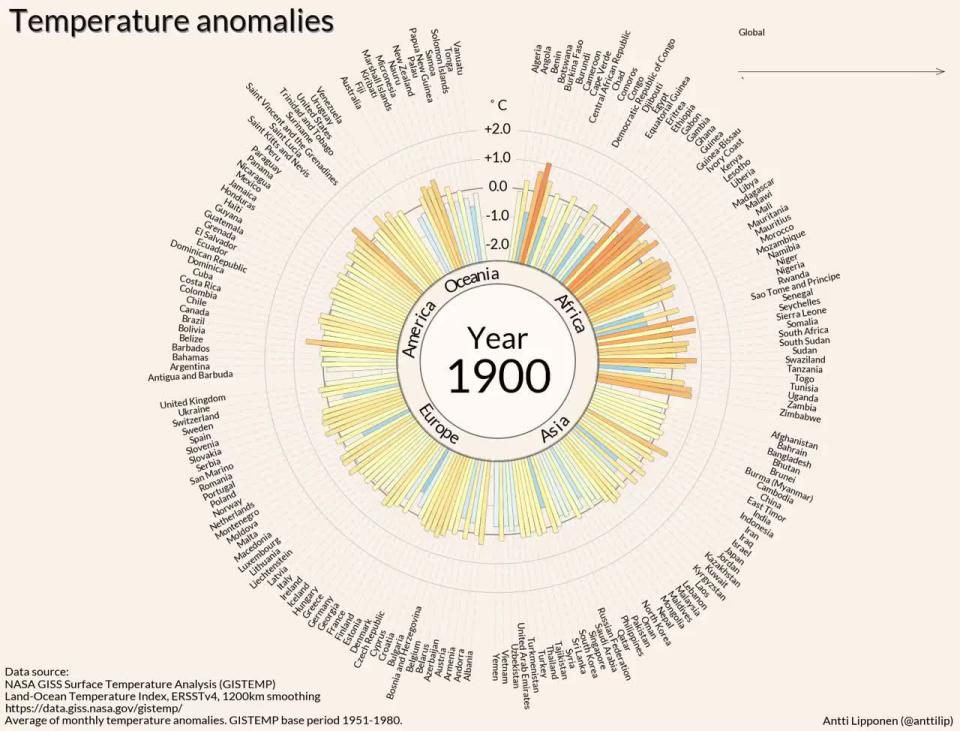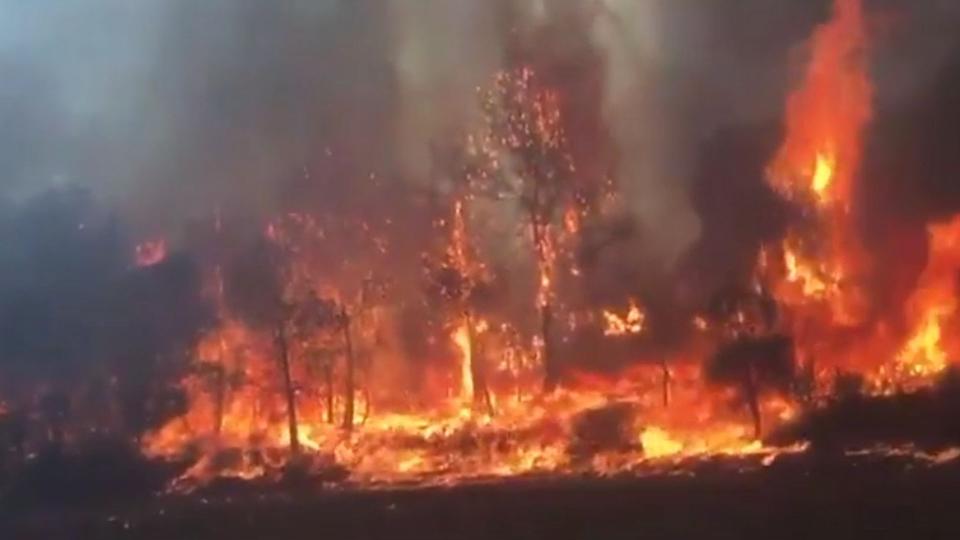Climate scientists promote a draft science report to protect it from Trump

The sharing of a federal climate science assessment with the New York Times on Monday should make you even more concerned about the fate of climate science and, well, facts, under the Trump administration.
Publicizing a scientific document before finishing the review process is not a typical act by climate researchers, and comes at an unprecedented time, during which Washington has declared war against inconvenient facts, including climate science findings showing the reality of human-caused climate change.
The report — which is a special climate science section that will form a critical component of a larger report known as the National Climate Assessment — amounts to a state of the science report on climate change that, unlike other reports, is specifically focused on how warming air and sea temperatures are already harming the United States, and will continue to do so in the future.
The report was uploaded to the Internet Archive, a non-profit digital library, in January, and recently shared with the New York Times. Versions of it were also publicly available during a comment period.
SEE ALSO: Rick Perry denies the reality that CO2 is the main climate change driver, and here we go again
Typically, scientists are loathe to share draft scientific reports with journalists, since there may be changes made during subsequent rounds of review. Furthermore, scientists tend to be a meticulous lot, wanting to nail down the wording of each sentence before rolling out a report to the public.
This isn't to say that such incidents have never happened before, but the motivations make this one stand out.
Plus, this is no ordinary time, considering that the administration is essentially at war with scientists in general, and climate scientists in particular.
The Times story, written by Lisa Friedman, for example, quotes an anonymous scientist as saying "he and others were concerned that it would be suppressed." On Aug. 1, Nature News also reported that scientists have growing concerns over the fate of the upcoming National Climate Assessment.
In other words, they think the findings are important for the public to know, and don't want this to be buried.
The report, which went through a technical review and is awaiting the administration's approval to be released, projects sweeping changes across the U.S. in coming decades, with average temperatures nationwide potentially increasing by up to 11.9 degrees Fahrenheit, depending on greenhouse gas emissions trends.
Already, the scientists concluded in this document, warming seen across the U.S. during the past several decades is unprecedented in at least the past 1,400 years.
The entire report amounts to a direct contradiction of the statements of cabinet officials and President Donald Trump himself about climate science findings.

During the administration's first six months in office, one official after another has said the science is too uncertain to conclude that human activities are causing global warming. Some, such as Scott Pruitt, the administrator of the Environmental Protection Agency, have brazenly denied the existence of human-caused global warming, and ordered webpages detailing climate science findings to be taken offline and revised.
Pruitt has, for example, said that no one knows how much warming human emissions of greenhouse gases are responsible for. The report answers that question — 1.1 to 1.3 degrees Fahrenheit of warming during the period from 1951 to 2010.
The Times story came on the same day that The Guardian and Inside Climate News reported that staff members at the Agriculture Department have been told to stop using the term "climate change," instead substitute terms like "extreme weather" and "weather resilience."
Peter Frumhoff, director of science and policy, at the Union of Concerned Scientists, an advocacy group, said scientists are right to be worried about the report's fate.
“Let’s be clear: federal scientists’ concerns that the administration will try to change or suppress this report are well-founded," he said in a statement. "The Trump administration has consistently demonstrated its lack of regard for science and evidence, including on climate change."
In this context, the White House could view the report as a direct threat to its world view, despite the fact that it has already cleared rigorous peer review and contributions from 13 federal agencies and the National Academy of Sciences.
“Evidence for a changing climate abounds, from the top of the atmosphere to the depths of the oceans,” the report states. "Many lines of evidence demonstrate that human activities, especially emissions of greenhouse (heat-trapping) gases, are primarily responsible for recent observed climate change.”
High odds this particular @usgcrp climate finding will stick in @EPAScottPruitt's craw: https://t.co/TIic9oNKoh pic.twitter.com/bN9Z82y60V
— Andy Revkin (@Revkin) August 8, 2017
While drafts of international climate assessments often leak out before publication, this one is different, since it is meant to force the administration to keep its hands off the report's release.
However, it's possible that the famously disorganized Trump White House was largely unaware of the report prior to the Times story, potentially causing the story to backfire spectacularly in that this attention has surely alerted the administration to the existence of the report by now.
There is no one staffing the "science" office at the White House Office of Science and Technology Policy, and Trump lacks a science advisor as well.
Officials advising the president would typically be tasked with shepherding this type of report through the policy review process.
In their absence, it’s possible no one noticed it sitting on an empty desk. Or, even more likely, it’s possible that political appointees, like Pruitt, could exert even more influence over the text without getting pushback from science staff members.
WATCH: Summer 2017 feels like it's on steroids – and it's only going to get worse


